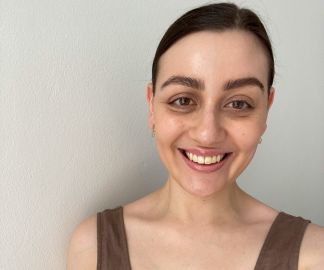At the time, I remember searching for something to assist me in navigating the confusing and sometimes very dark, difficult relationship of loving myself and my appearance. Cancer does this facetious thing, where you love your body for working so incredibly hard to keep your heart pumping, but at the same time, you abhor it because it’s the source of all your pain.
It’s a fine line to walk, but the world of skin care opened up a pathway to allow me to enjoy my own reverie. And so, my foray into beauty and skin care as a cancer patient began.
In my endeavour to find products I could use, I became hyper aware of how the beauty industry doesn’t cater to people like me.
Cancer skin isn't talked about online, on YouTube or on my Instagram feed, and in the real world, I’ve been turned away from salons after ticking the cancer box, because the therapists weren't sure if it’s safe to touch my skin.
The advice from my specialists was to use 'gentle products' (aka a blanket term for basic and boring), but I craved to be like everyone else, layering beautiful products and engaging in intimate self-care at such a crucial time in my life. I also just wanted to find the small pocket of solace taking the time to gently pat a serum into my skin could give me.
So, after hours of reading, researching and road-testing, this article is a short summary of what I wanted to find when I first Googled cancer skin. Here's what I've learnt so far.
My Edit of the Best Skincare Products for Cancer Patients.

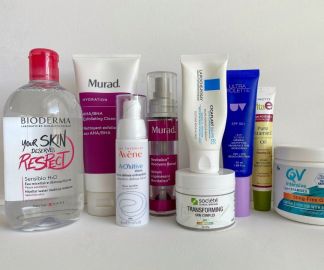
I reached out to Madona El Machar, Dermal Therapist at Kaelon Beauty Salon, to help me better understand how cancer treatment can affect the skin.
For me, the dryness was (and is) the worst, so why does that happen?
"The natural moisturising factors and hyaluronic acid [in the skin] is degraded as a result of the radioactive emissions or your type of treatment," she said.
"It's important to replace the loss by using humectants, emollients, ceramides, glycerin, shea butter, phospho-lipids and hyaluronic acids. These are all moisturising ingredients that are also very soothing."
Below, you’ll find a curated selection of products that have helped me with my cancer skin. Sure, I still have dark circles that won’t go away. But my pigmentation is clearing up, my skin’s texture is smooth, and my blackheads are minimal. My skin isn’t bone dry all the time. Just sometimes.
A note: Everyone's skin is different, but this is what works for my skin.
1. Bioderma Sensibio H2O Micellar Water.

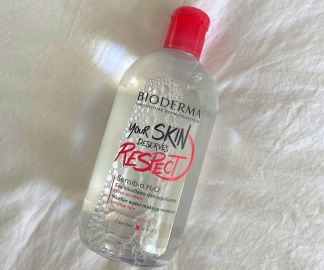
Bioderma Sensibio H2O Micelle Solution is a staple on my dresser. It’s incredibly gentle on the skin while removing makeup, or used as a first cleanse.
The main thing? It doesn’t strip your skin! When the fatigue hits (and boy, can it hit hard), a few gentle swipes of this across my face and my skin feels refreshed and clean.
2. Murad AHA BHA Exfoliating Cleanser.

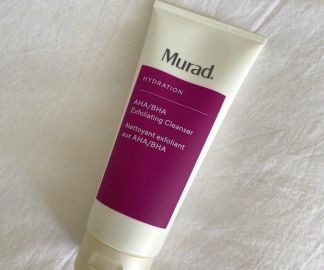
Having cancer skin doesn’t mean I have to miss out on exfoliation. I love a face scrub, so long as you’re not rubbing hard - just enough to buff away dead skin cells.
Formulated with gentle exfoliating AHAs (alpha hydroxy acids) and BHAs (beta hydroxy acids), Murad Age Reform AHA/BHA Exfoliating Cleanser 200ml has visibly minimised my blackheads, leaving my skin bright and silky smooth with extended use.
3. Avene A-Oxitive Defence Serum.

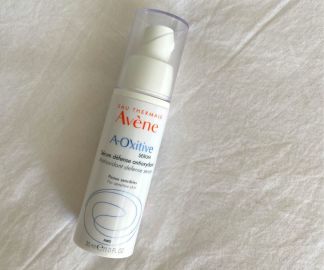
As cancer skin can be quite lacklustre due to the myriad of treatments, I’ve always relied on the brightening properties of vitamin C. I’ve found getting that glow is achievable when this ingredient is a constant in my routine.
Avène A-Oxitive Antioxidant Defence Serum 30ml has a high concentration of vitamin C that is delivered into the skin gradually, which, in short, is perfect for skin like mine. It’s a milky texture and goes on like a dream.
4. Murad Revitalixir Recovery Serum.

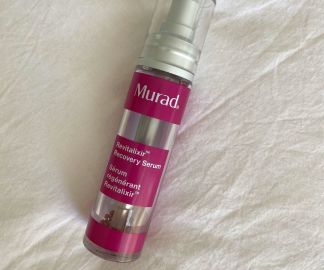
Murad Revitalixir Recovery Serum is one of my holy grail products. It’s been designed to combat the signs of ageing caused by stress. As stress is my middle name, no wonder I love this product so much.
This hydrating serum just Does. It. All. It has some of my all-time favourite ingredients like cannabis sativa seed oil, hyaluronic acid, niacinamide to refine skin tone, and caffeine to reduce puffiness – it revitalises and plumps my very thirsty skin. I love it.
5. La Roche-Posay Ciciplast Baume B5 Balm.
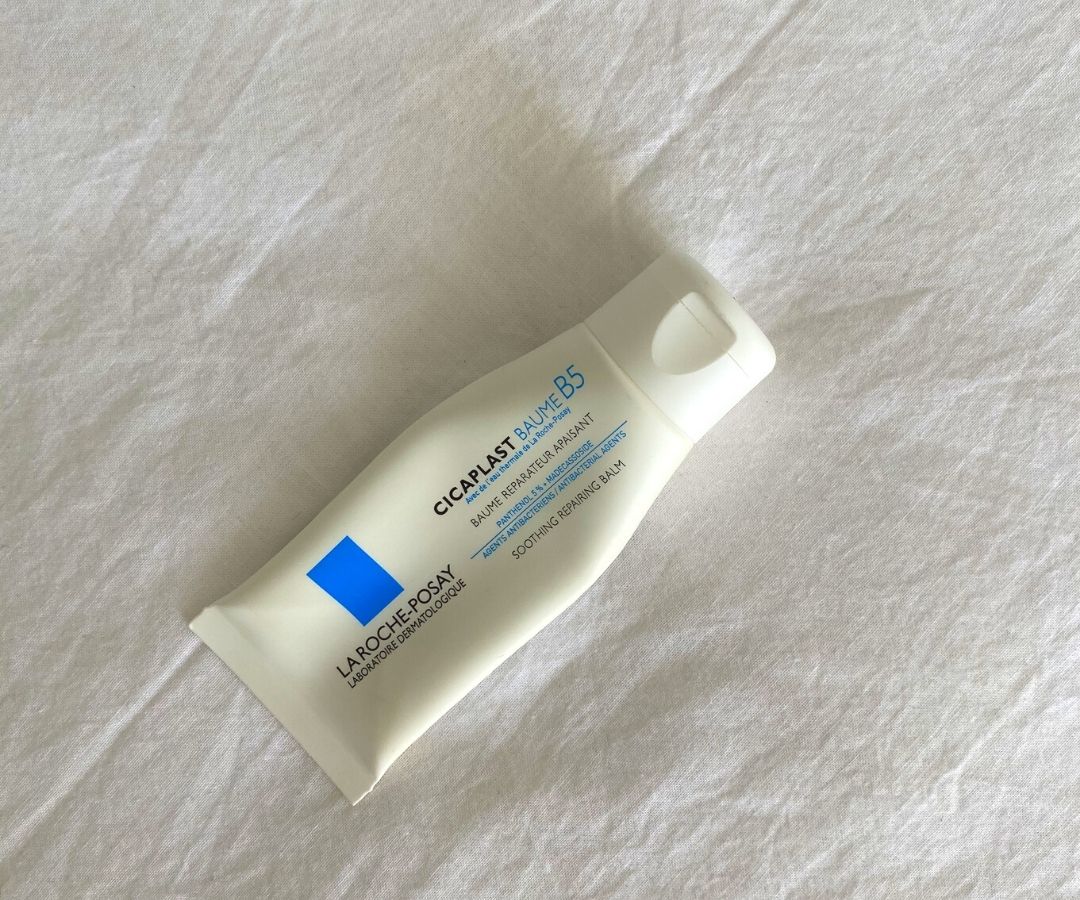
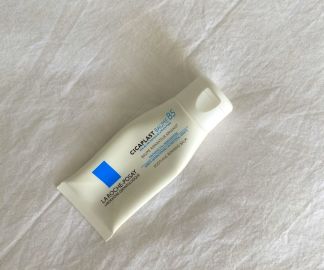
If there was ever a product to write a love letter to, La Roche-Posay Cicaplast Baume B5 Balm would be it. This balm is amazing for soothing compromised skin, and has outstanding barrier repair capabilities.
Cancer therapy often leaves my skin feeling bone dry and sometimes, even sore. This brings it back to life.
6. Société Transforming Skin Complex.

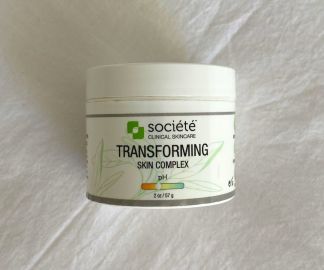
I somehow stumbled across Société Transforming Skin Complex and now I’ve tried it, I must always have it in my arsenal. It’s a lighter moisturiser packed with a rich blend of antioxidants, vitamins and botanical extracts.
I've noticed a huge difference in my skin since I started using it daily. Not only is it suitable for sensitive skin types, but it brightens, plumps, banishes dullness and rebuilds the skin barrier.
7. Ultra Violette Lean Screen SPF 50+.

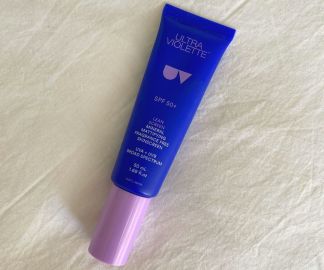
A little PSA for all: sunscreen isn’t just for the beach. It’s for every day and everyone.
Ever since Ultra Violette Lean Screen SPF50 Sunscreen came out, it's been a best-seller.
This zinc-only mineral sunscreen has a thicker texture, but once rubbed in, it makes skin look and feel radiant.
Cancer skin is particularly susceptible to sun damage so sunscreen, hats, sunglasses and covered shoulders always, please!
And make sure to use sufficient sunscreen for all unprotected areas and reapply sunscreen as directed. Always read the label. You know the drill.
Two other products I have to mention are Plunketts Vita E Pure Vitamin E Oil
and QV Intensive with Ceramides.
To put it very simply: if you have scars on your body, Plunketts Vitamin E Oil is for you.
And the QV ointment formulated with ceramides to replenish the skin is the best thing for dry, itchy, scaly skin. Basically, it’s what you need if you have cracked skin on your heels or elbows from wearing compression garments – it will work miracles.
What I Want You to Know About Cancer Skin.
Over time, I’ve become a skincare aficionado, despite being told the narrative that people with cancer can’t participate in beauty.
This rhetoric teaches us that these skin conditions, illnesses or even disabilities are things to be afraid of. Only to be talked about in closed groups. Never have I wanted to change something more, to break that narrative and carve out a space for myself and everyone like me.
Cancer shouldn’t be hidden away, especially by the beauty industry. It should be embraced with open arms. Having cancer isn’t anyone’s fault – it happens. We need to embrace it and different standards of beauty, especially when one in two people will experience a form of cancer in their lifetime.
You can hear more from Natalie, and listen to her passion and generous storytelling in this episode of the Beauty IQ Uncensored podcast below.


